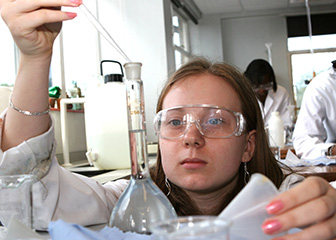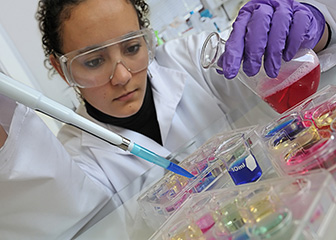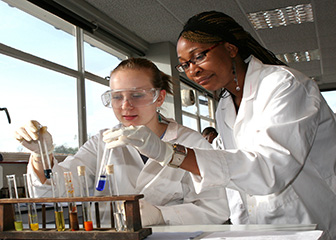Summary

| Quick Facts: Chemical Technicians | |
|---|---|
|
$42,040 per year
$20.21 per hour |
|
| Associate’s degree | |
| None | |
| Moderate-term on-the-job training | |
| 61,000 | |
| 7% (Slower than average) | |
| 4,100 | |
What Chemical Technicians Do
Chemical technicians use special instruments and techniques to help chemists and chemical engineers in researching, developing, and producing chemical products and processes.
Work Environment
Technicians typically work in laboratories, where they conduct experiments, or in manufacturing facilities, such as chemical or pharmaceutical manufacturing plants, where they monitor production processes. Most technicians work full time.
How to Become a Chemical Technician
Chemical technicians need an associate’s degree or 2 years of postsecondary training for most jobs. Most chemical technicians receive on-the-job training.
Pay
The median annual wage of chemical technicians was $42,040 in May 2010.
Job Outlook
Employment of chemical technicians is expected to increase by 7 percent from 2010 to 2020, slower than the average for all occupations. Graduates of applied science technology programs who are well trained on equipment used in laboratories or production facilities should have the best opportunities.
Similar Occupations
Compare the job duties, education, job growth, and pay of chemical technicians with similar occupations.
O*NET
O*NET provides comprehensive information on key characteristics of workers and occupations.
Contacts for More Information
Learn more about chemical technicians by contacting these additional resources.










